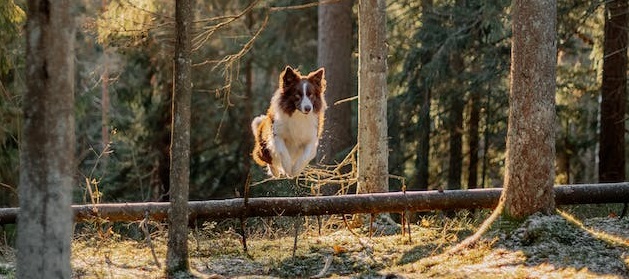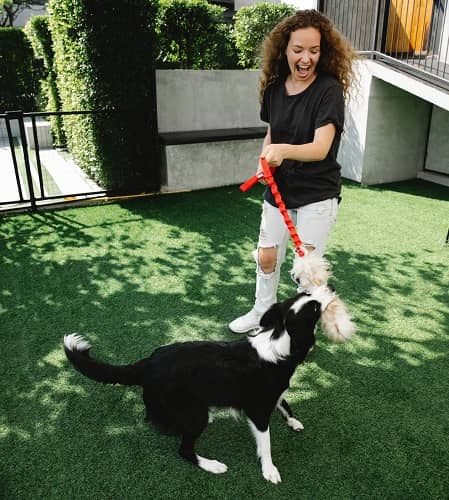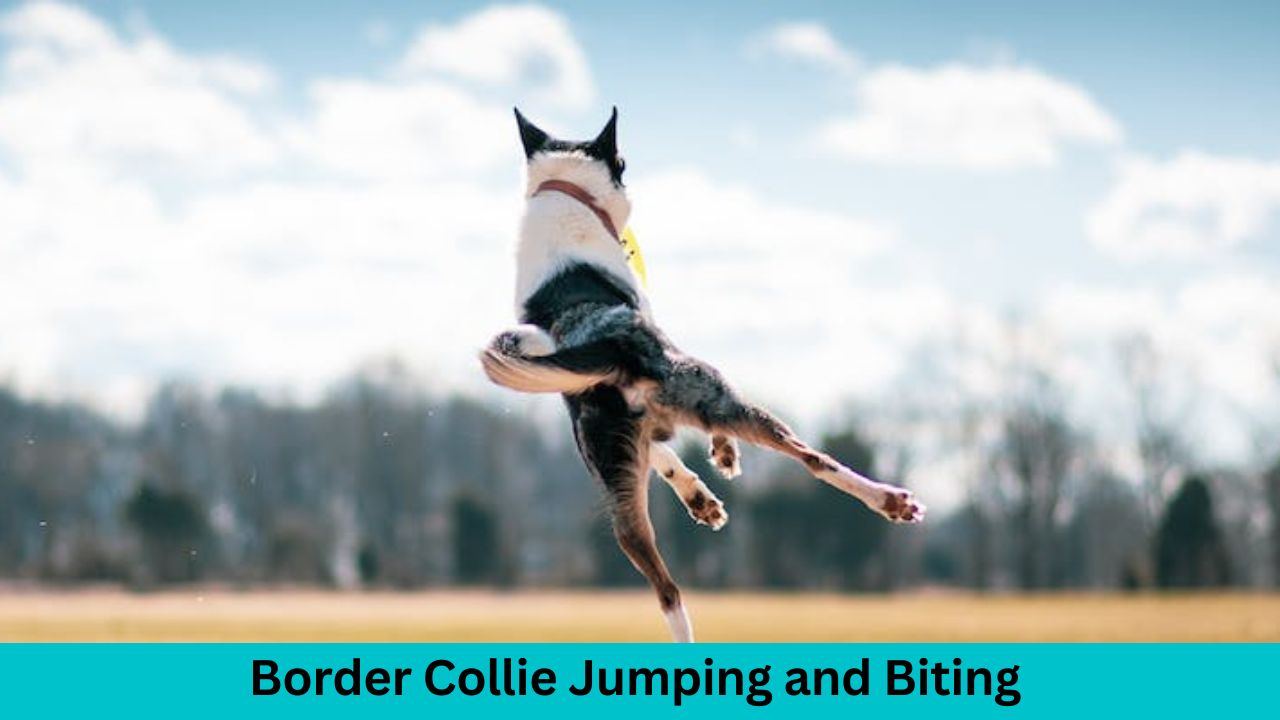Border Collies bring boundless energy and unparalleled companionship to our lives. Their spirited nature can sometimes manifest in behaviors that pose challenges to both you and themselves. But what to do if a border collie jumping and biting?
Socialization and professional help is necessary for persistent issues. Positive reinforcement and patience are essential in both cases.
In this comprehensive article, I will help you to understand two such behaviors: jumping and biting, frequently encountered among Border Collies. Let’s start this journey with a lot more information!
Jumping Behavior in Border Collies

Jumping behavior in Border Collies is often a result of their high energy levels and enthusiasm. Understanding the reasons behind this behavior can help in managing it effectively:
The Reasons
Herding Instinct: Border Collies have a strong herding instinct, which includes jumping to control and guide movement, a trait inherited from their herding ancestors.
Excitement: Border Collies are naturally excitable dogs. They may jump when they’re happy to see someone or experience something thrilling.
Attention-Seeking: Some Border Collies have learned that jumping on people gets them attention, such as petting, play, or treats, reinforcing this behavior.
Boredom: When Border Collies have excess energy and feel bored, they may resort to jumping as a way to release pent-up frustration.
Social Interaction: In the dog world, jumping can be a form of greeting and social interaction, which Border Collies may carry into their interactions with humans.
The Challenges
While jumping may appear harmless, it can pose several challenges:
Accidental Injuries: The exuberance of a jumping Border Collie can accidentally cause injuries. The dog jumps particularly among children or elderly family members.
Clothing Damage: Sharp claws and teeth can damage clothing. Also it may leave owners frustrated and potentially causing financial burdens.
Social Awkwardness: Some people may find jumping dogs intimidating or uncomfortable. Also, it leads to awkward social interactions.
How to manage?
Obedience Training: Teach basic commands like “sit” and “stay.” Reward your Border Collie for following these commands, using positive reinforcement to encourage calm behavior.
Ignore and Reward: When your dog jumps on you, ignore them completely by turning away and avoiding eye contact. Only reward them with attention and affection when they are calm with all four paws on the ground.
Leash Control: In situations where your Border Collie tends to jump on people, keep them on a leash to maintain control and prevent jumping.
Exercise: Ensure your Border Collie gets plenty of exercise and mental stimulation through daily walks and engaging activities. A tired dog is less likely to engage in excessive jumping.
Biting Behavior in Border Collies

Biting behavior in Border Collies can have various motivations and causes:
The Reasons
Biting behavior in Border Collies can have various motivations, often rooted in their instincts and temperament:
Herding Instincts: Border Collies possess a strong herding instinct. They may nip or bite to control or direct movement, a behavior inherited from their herding ancestors.
Playfulness: Border Collies are naturally playful dogs. They might use their mouths to initiate play with their human companions, which can sometimes lead to nipping.
Teething: In puppies, nipping can be a response to teething discomfort. Chewing and nipping can provide relief from the pain associated with emerging teeth.
Communication: Dogs, in general, use their mouths to communicate. Mild nipping can be a form of interaction, though it’s essential to ensure it remains gentle and non-harmful.
The Challenges
Biting behavior, even if not aggressive, can pose several challenges:
Painful Nips: Even unintentional nips can be painful, especially if your Border Collie’s teeth are sharp. This can lead to discomfort and apprehension during interactions.
Escalation: If not addressed appropriately, nipping behaviors can escalate, potentially leading to more severe biting incidents in the future.
Social Interactions: Nipping can create uncomfortable or unpleasant social situations, particularly around strangers, young children, or other pets.
How To Manage?
Bite Inhibition: Teach your Border Collie bite inhibition, which means training them to have a gentle mouth. When your dog nips too hard during play, let out a high-pitched yelp to mimic a puppy’s response to pain. This signals that the bite was too rough, and you should withdraw your attention for a brief moment. This method helps your dog learn to control the force of their bites.
Redirect Attention: When your Border Collie nips, redirect their attention to a toy or appropriate object for chewing. This teaches them that biting humans is not acceptable behavior, but chewing on toys is.
Socialization: Early and positive socialization plays a significant role in reducing nipping tendencies. Expose your Border Collie to various situations, people, and other dogs to help them become well-adjusted and comfortable in different environments.
Obedience Training: Basic obedience commands like “sit,” “stay,” and “leave it” can be effective tools in managing and redirecting your dog’s behavior. These commands allow you to communicate expectations and maintain control in various situations.
Some Useful Tips
By following these tips and techniques, you can effectively train your Border Collie to reduce jumping or biting .
- Always use positive reinforcement to reward desired behavior and encourage repetition.
- Training your Border Collie requires consistency.
- If you find it challenging to manage your Border Collie’s behaviors, don’t hesitate to seek assistance from a professional dog trainer.
- Maintain consistent rules and commands within your household to avoid confusion.
- Training takes time, so be patient and persistent in your efforts.
- Ensure your Border Collie receives ample physical and mental exercise to keep their energy levels in check.
- Start addressing these behaviors as early as possible, especially in puppies.
Final Verdict
You may already know what to do, if your Border Collie jumping and biting. While jumping and biting behaviors can present challenges, you can try to maintain them. With the right training, love, and understanding, you can change their behavior.
With patience, consistent efforts, and the information provided in this article, you can enjoy a harmonious relationship with your Border Collie. Seek professional assistance if the behaviors persist or become problematic. Your efforts will lead to a well-behaved and happy canine companion.

